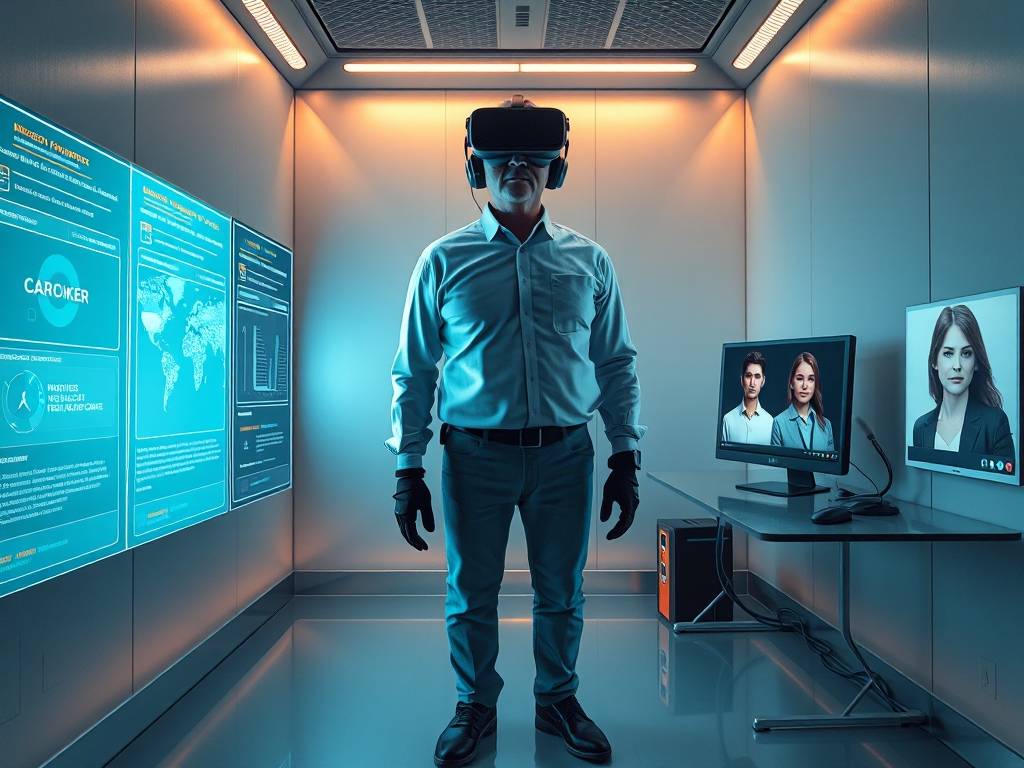The Uncomfortable Thrill: Inside the "Dishonesty Simulator VR" Lie Missions Update
The virtual reality landscape is perpetually evolving, pushing beyond the boundaries of pure entertainment into the complex realm of human experience. The latest, and perhaps most controversial, step in this evolution is the "Lie Missions" update for the critically acclaimed social experiment, Dishonesty Simulator VR. This isn't just a new level pack; it's a profound, often unsettling, deep dive into the psychology of deception, forcing players to navigate a moral quagmire where the stakes are simulated, but the emotional resonance is startlingly real.
Prior to the update, Dishonesty Simulator VR was a sandbox of petty crime and white-collar mischief—a pressure valve for societal rule-breaking. Players could engage in shoplifting, cheat on virtual tests, or fudge tax returns, all within a consequence-free digital environment. The core appeal was the visceral thrill of getting away with it, coupled with the game's sophisticated AI that reacted with suspicion, doubt, or outright accusation based on the player's physiological cues, tracked via haptic feedback and biometric sensors.

The "Lie Missions" update elevates this concept to an entirely new narrative level. It introduces a structured campaign of ten intricate scenarios, each designed to explore a different facet and motivation for lying.
#DishonestySimulatorVR #LieMissions #VRGaming #MoralityPlay #EthicsInGaming #Psychology #Simulation
One mission, "The Inherited Secret," places you at the deathbed of a beloved virtual grandfather. In a hushed, emotionally charged conversation, he entrusts you with a devastating family truth, making you swear to never reveal it to your grieving "sister." The subsequent interactions with her—a brilliantly realized AI character pleading for closure—are agonizing. The game tracks your eye movement, the hesitation in your voice commands, and even your breathing rate. Do you maintain the lie to honor a dying wish, potentially damaging your relationship with your sibling forever? Or do you unburden yourself with the truth, betraying a final promise?
Another mission, "The Whistleblower," casts you as a mid-level employee in a corrupt corporation. You've uncovered evidence of massive environmental wrongdoing. The mission isn't about a single lie but a web of them. You must deceive your friendly colleagues, lie to your intimidating boss during a tense one-on-one meeting in a virtual office, and carefully manipulate information. The pressure mounts as the company's security AI begins to audit your digital footsteps. Here, lying is framed as a necessary tool for a greater good, challenging the simplistic notion that all deception is inherently evil.
The technological marvel of the update lies in its expanded "Social Echo System." Previous AI interactions were largely reactive. Now, they are predictive and have memory. An NPC you lie to in Mission 3 might approach you in Mission 7 with lingering distrust, their dialogue options more guarded and skeptical. The game doesn't just judge you on a pass/fail basis for completing a lie; it builds a profile of your style of deception. Are you a blunt, avoidant liar? A smooth, charismatic manipulator? Or a guilt-ridden deceiver whose physical tells are obvious to everyone? The post-mission debriefs provide chillingly accurate psychological feedback, offering insights into your own real-world tells and emotional responses to duress.
#VirtualReality #AIIntelligence #GameDesign #NarrativeGaming #SocialSimulation
This update has, predictably, ignited a firestorm of ethical debate. Critics argue that Dishonesty Simulator VR is no longer just a game but a potential training ground for antisocial behavior, normalizing deception and potentially helping malicious users practice their craft. They question the morality of making a compelling, even fun, experience out of acts that erode trust, the fundamental glue of human society.
The developers, Obliquity Studios, have responded to these concerns head-on. Their lead psychologist, Dr. Alena Petrova, argues the opposite. "The 'Lie Missions' update isn't about glorifying dishonesty," she stated in a recent press release. "It's about creating the world's first empathy machine for a difficult emotion: guilt. By allowing players to safely experience the immense psychological weight, the tangled web, and the often unintended consequences of lying, we foster a deeper understanding of its real-world impact. It's a preventative tool, not a training program. Players aren't learning how to lie; they are learning why they often wish they didn't have to."
The true success of the "Lie Missions" update is that it transcends its medium. After a playthrough, you don't just talk about cool graphics or fun mechanics. You find yourself discussing the ethical dilemma you faced. You reflect on a time you told a similar lie in real life and how it made you feel. The headset comes off, but the cognitive dissonance lingers.

Dishonesty Simulator VR: Lie Missions is more than a game update; it's a landmark moment in interactive storytelling. It proves that VR's ultimate power isn't just in transporting us to fantastical worlds, but in holding up a digital mirror to our own humanity, forcing us to confront the uncomfortable, complicated, and deeply human act of looking another person in the eye—virtually or otherwise—and choosing not to tell the truth.


















